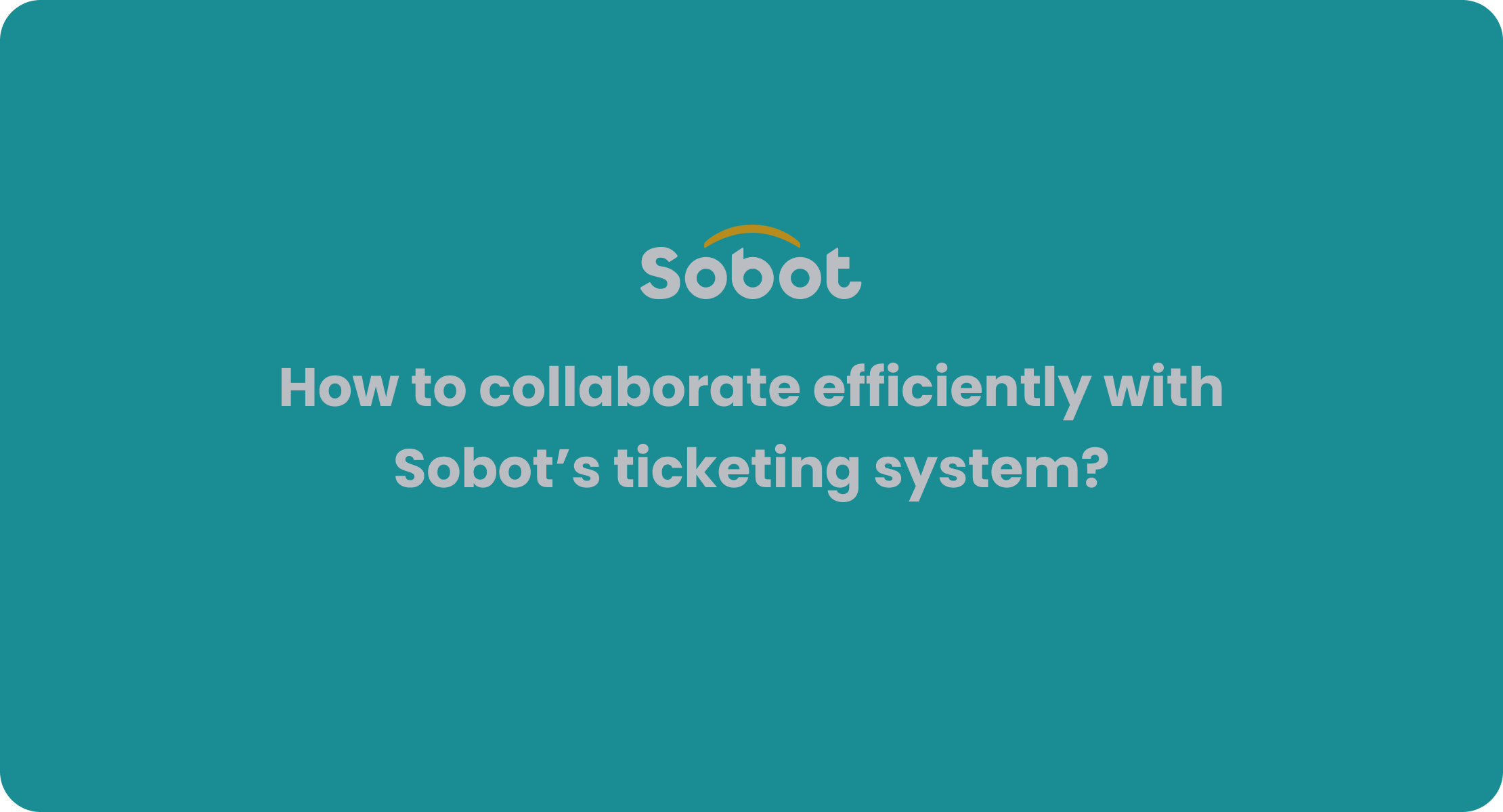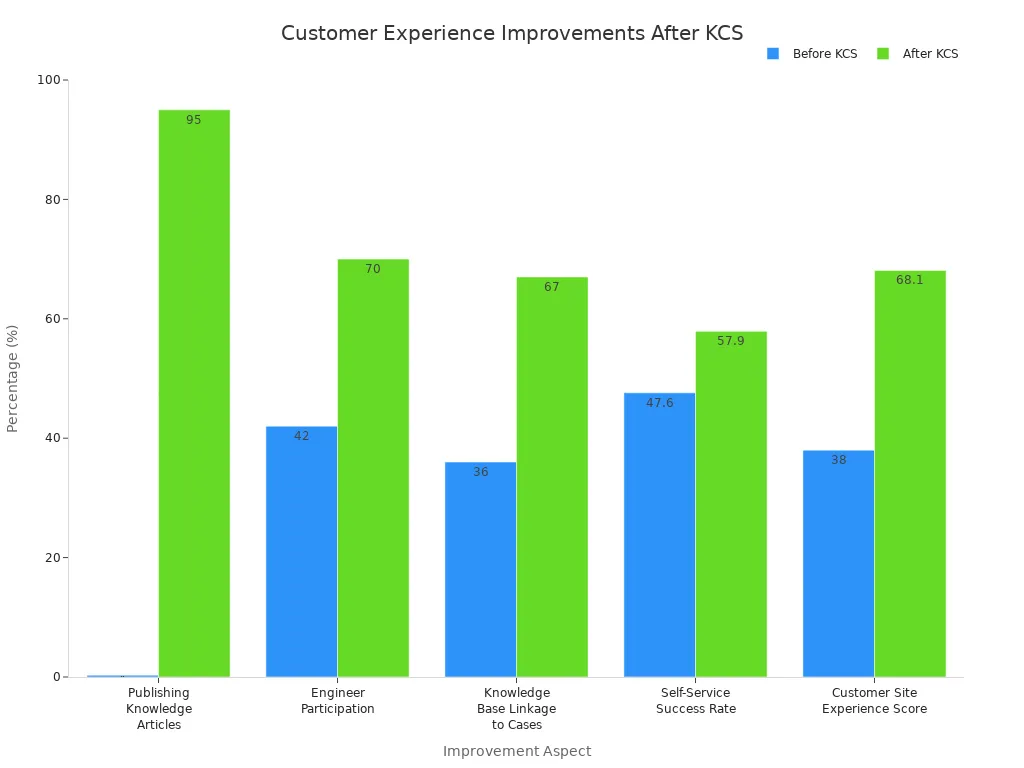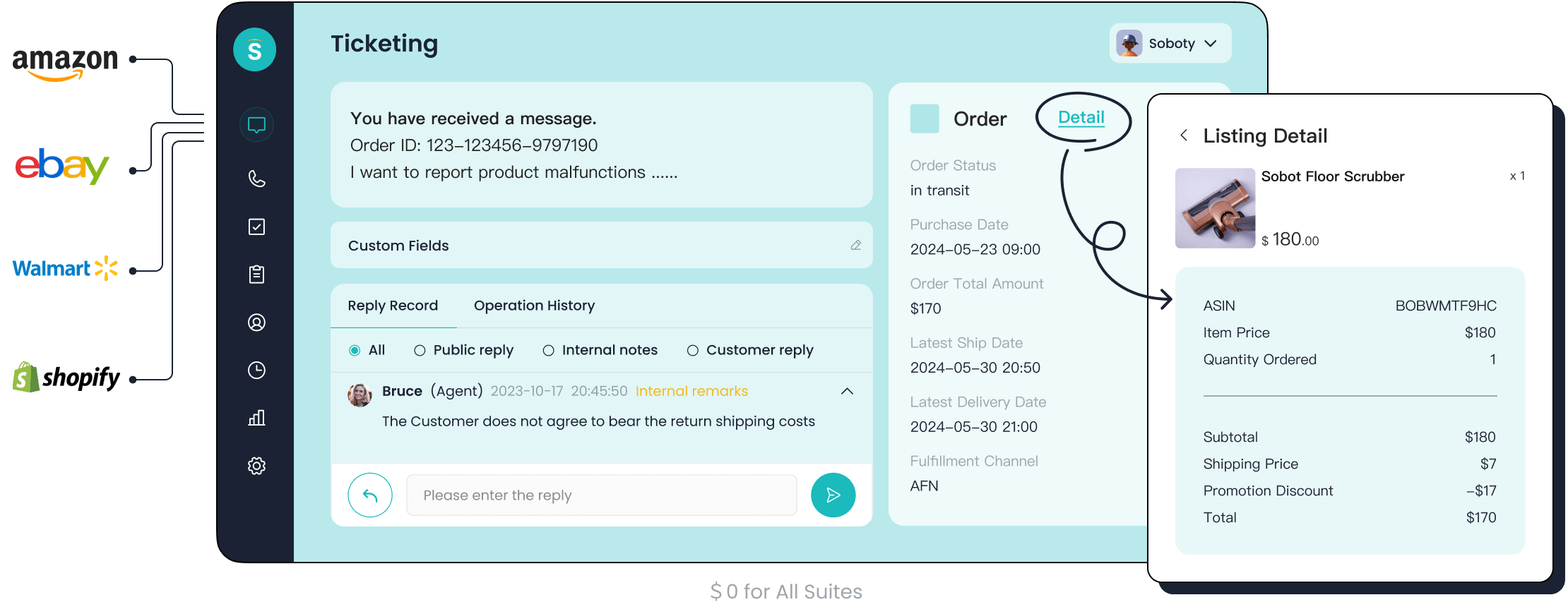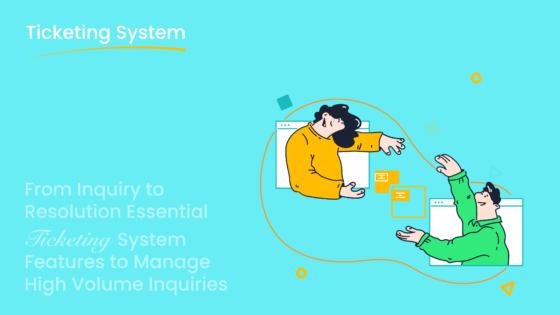Top Knowledge-Centered Service Case Studies You Should Know

Customer service teams often face issues like slow response times, ticket backlogs, and a lack of personalization in interactions. These challenges can impact both the customer and the business. Knowledge-centered service (KCS) addresses these problems by integrating knowledge management into daily workflows. Teams using KCS see reduced repeated effort and faster resolutions. The value of learning from real-life examples becomes clear as organizations like Sobot call center show how KCS and Sobot AI transform service delivery. Sobot’s solutions highlight the value of learning and continuous improvement for every customer interaction.
Real-Life Examples of Knowledge-Centered Service
Why Real-World KCS Matters
Real-life examples of knowledge-centered service show the real value of KCS in many industries. These cases highlight how learning and knowledge sharing drive better outcomes for both customers and organizations. Companies in software, healthcare, financial services, and e-commerce use KCS best practices to improve customer support and knowledge management. The table below shows how different industries apply KCS:
| Industry | KCS Implementation Example |
|---|---|
| Software | Support centers with FAQs, feature guides, and troubleshooting content for faster resolutions. |
| Healthcare | Knowledge bases with treatment details and wellness guidance for better patient support. |
| Financial Services | Internal and external knowledge bases for up-to-date product info and empowered customer participation. |
| E-commerce | Self-service portals for product details, shipping, and returns, enhancing the shopping experience. |
These real-life examples prove that KCS participation and knowledge sharing help teams solve problems quickly. Learning from these cases helps organizations understand how to build a strong knowledge base and improve customer service.
Key Benefits for Customer Service
KCS brings measurable improvements to customer support and knowledge management. Organizations see faster learning, higher participation, and better customer experiences. The table below summarizes key performance gains after KCS adoption:
| Performance Metric | Improvement Range | Organizational Impact |
|---|---|---|
| First-contact resolution | 30% - 50% increase | Faster problem resolution, improved customer satisfaction. |
| Time-to-proficiency for new staff | 70% faster | Quicker onboarding and productivity ramp-up. |
| Employee retention | 20% - 35% improvement | Reduced turnover, better team stability. |
| Employee satisfaction | 20% - 40% improvement | Higher morale and engagement. |
| Support requests | 10% fewer | Reduced workload and operational costs. |
| Time to resolution | 50% - 60% improvement | Enhanced service efficiency and customer experience. |
Regular learning and knowledge sharing help teams keep their knowledge base up to date. KCS participation ensures that agents contribute new articles and improve existing ones. This process supports self-service, which reduces ticket volume and empowers customers to find answers on their own.


Sobot’s omnichannel solutions and Ticketing System support KCS by unifying communication channels and automating workflows. These tools enable seamless participation, faster learning, and better self-service for both agents and customers. Real-life examples show that KCS delivers lasting value and transforms customer support into a strategic asset.
Sobot and Agilent: KCS in Action

The Challenge
Agilent, a leader in life sciences and diagnostics, faced a complex case. The company needed to manage a high volume of customer inquiries with speed and accuracy. Their support team struggled to keep up with requests from multiple channels. Agents often switched between platforms, which slowed down response times. The company wanted a transformation that would boost efficiency and improve customer satisfaction. Agilent also needed a way to provide 24/7 support and reduce operational costs. The existing system could not deliver the results they needed for a growing customer base.
Sobot’s Solution
Sobot delivered a powerful transformation for Agilent’s support operations. The Omnichannel Solution unified all customer messages into a single workbench. Agents could now handle every case from one platform, which saved time and reduced errors. Sobot’s AI-powered chatbot, built on a robust knowledge base, provided instant answers around the clock. This chatbot learned from each case, updated the knowledge base, and handled routine questions without delay. Intelligent routing matched each customer to the right agent or skill group, ensuring targeted service for every case. Sobot’s Ticketing System automated ticket creation, assignment, and tracking, making it easy to manage every case efficiently. Comprehensive data APIs allowed seamless integration with Agilent’s internal systems, giving managers access to over 300 performance metrics.
Sobot’s solution gave Agilent the tools to deliver fast, accurate, and consistent support across all channels.
Results and Impact
The transformation brought measurable results. Agilent saw a sixfold increase in customer service efficiency. Operational costs dropped by 25%. Customer satisfaction soared to 95%. The AI chatbot handled routine cases, freeing agents to focus on complex issues. The unified platform reduced the need for extra staff and cut down on manual work. Agilent’s online community also grew, with more users joining and returning for support. The company achieved a high percentage of answered questions, which set a new standard for knowledge-centered service. Repeat visitors and positive feedback proved the ongoing value of the transformation. Agilent’s case now stands as a top example of KCS success, showing how the right tools can drive outstanding results in customer support.
KCS Success in Global Tech Companies
ServiceNow Case Study
ServiceNow stands out as a leader in knowledge management. The company adopted knowledge-centered service practices to improve support operations. ServiceNow uses a structured approach to create and maintain a knowledge base. This approach helps agents solve cases faster and with greater accuracy.
- New employees reach proficiency 70% faster after ServiceNow implemented KCS.
- The company saw a 25-50% improvement in resolution times for support cases.
- Knowledge articles are written in clear, consumer-friendly language, which helps customers find answers without contacting support.
- ServiceNow supports workflows like Use it, Flag it, Fix it, Add it (UFFA), which keeps the knowledge base current and useful.
- The Article Quality Index (AQI) ensures that every article meets high standards.
ServiceNow’s KCS success comes from making knowledge available at the point of need. Agents can create articles directly from cases, which speeds up knowledge capture. Defined roles and approval workflows help maintain quality and consistency. This process leads to fewer escalations and higher customer satisfaction. Companies that follow this model often see better employee retention and a stronger culture of learning.
Extreme Networks Case Study
Extreme Networks also achieved strong results with knowledge-centered service. The company focused on building a collaborative knowledge management system. This system allowed teams to share solutions and improve service delivery.
- Extreme Networks experienced a 30-50% increase in first contact resolution rates.
- The company reduced escalations by making knowledge available to both agents and customers.
- New hires reached full productivity up to 70% faster.
- The knowledge base became a central resource for solving cases and training staff.
Extreme Networks used feedback loops to improve articles and processes. Employees felt more confident and satisfied because they could find answers quickly. The company also avoided up to 50% in support costs by reducing repeat issues and improving efficiency.
Many global technology companies, including ServiceNow and Extreme Networks, show that KCS adoption leads to measurable gains in knowledge management, operational efficiency, and customer satisfaction. Sobot’s Ticketing System and Omnichannel Solution support similar outcomes by unifying communication channels and automating workflows, helping companies build a strong knowledge base and achieve KCS success.
KCS for Call Centers and Support Teams

Call centers and support teams face constant pressure to deliver quick resolution of issues while maintaining high standards of customer support. Knowledge-centered support provides a framework that empowers agents to access and share knowledge for quick resolution. This approach leads to better retention of both employees and customers, as teams can solve cases efficiently and consistently.
Paychex Case Study
Paychex, a leading provider of payroll and HR solutions, transformed its customer support by adopting KCS. The company wanted to improve onboarding speed, increase first-contact resolution, and boost retention among agents. By building a robust knowledge base, Paychex enabled agents to find knowledge for quick resolution of issues. New hires reached proficiency faster, which reduced training time and improved retention. The company also saw a rise in self-service usage, as customers could access accurate information without waiting for an agent. Paychex reported higher customer satisfaction and a noticeable drop in repeat cases, showing the value of knowledge-centered support in real-world operations.
Vantiv Case Study
Vantiv, a major payment processing company, faced challenges with fragmented knowledge management and low agent confidence. The company introduced KCS best practices to address these issues. The transformation focused on empowering agents to create and use knowledge for quick resolution of customer support cases. The table below summarizes Vantiv’s journey:
| Aspect | Evidence from Vantiv's KCS Transformation |
|---|---|
| Initial State | Primitive knowledge management with poor content quality, inconsistent templates, limited access, no agent empowerment to create/modify articles, and broken workflows causing frustration and low confidence in the knowledge base. |
| Knowledge Management Strategy | Introduced KCS best practices, trained agents to search early and share knowledge, empowered agents with accessible, high-quality knowledge in a single knowledge base, and supported a 'shift left' approach by consolidating content from multiple sources. |
| Success Metrics | Achieved a 2000% increase in KCS participation (reuse and creation in workflow), a 91% Solution Quality Index score, and a 148% increase in article creation outside the workflow within two quarters of program launch. |
| Business Impact | Established business objectives around KCS participation and article quality, integrated KCS focus into senior leadership meetings, and planned future objectives around self-service and deflection, demonstrating alignment with organizational goals and improved customer and employee satisfaction. |
Vantiv’s case demonstrates how KCS can drive quick resolution of issues and improve retention. The company saw a dramatic increase in agent participation and article quality. Self-service options expanded, allowing customers to resolve cases independently. This shift led to higher retention rates among agents and customers, as well as more consistent customer support experiences.
Companies like Paychex and Vantiv show that KCS transforms call center operations. By focusing on knowledge for quick resolution and self-service, organizations achieve better retention, faster onboarding, and improved resolution rates. Sobot’s Ticketing System and Omnichannel Solution support these outcomes by unifying communication channels and automating workflows, making it easier for support teams to deliver high-quality customer support and retain top talent.
Lessons from Knowledge Management Leaders
Common Success Factors
Organizations that build a successful knowledge program share several traits. Leadership commitment stands out as a driving force. Leaders set the tone for a culture that values learning and rewards kcs participation. They align strategy, structure, and technology to support the knowledge management program. In many case studies, robust systems like Sobot’s Ticketing System improve productivity by giving teams timely access to relevant knowledge. Capturing and sharing expertise helps teams make better decisions and solve problems faster.
A successful knowledge program also depends on collaboration. Teams that work together and share information see better results. For example, companies report a 25-30% reduction in training costs and a 15-25% increase in productivity when they focus on learning and participation. Cultural factors, such as openness to change and willingness to share, play a big role in the transformation. Technology, like Sobot’s unified platform, enables seamless communication and supports kcs best practices.
Case studies show that organizations with strong leadership, clear strategy, and the right tools achieve lasting transformation and measurable results.
Practical Tips for KCS Adoption
Leaders can follow several steps to launch and sustain a successful knowledge program. Start with leadership development. Train managers to coach and engage teams rather than direct every action. Support knowledge workers with the right perspective, training, and tools. Sobot’s Ticketing System, for example, offers automation and analytics that help teams track kcs participation and improve workflows.
Organizations should begin with a small group to test the process and learn from early results. Continuous communication keeps everyone aligned and motivated. Regular coaching and feedback help maintain momentum. Define clear goals, such as reducing ticket resolution times or improving customer satisfaction. Customize workflows and permissions to fit the organization’s needs. Pilot testing and training ensure a smooth transformation.
A focus on learning and improvement drives long-term success. Use metrics to measure participation, knowledge quality, and customer impact. Engage with the broader KCS community to share insights and stay updated on kcs best practices. By following these steps and leveraging solutions like Sobot, organizations can achieve a successful knowledge program that delivers real value.
Organizations gain practical insights from each case, showing that continuous learning drives real improvement. Sobot’s Ticketing System stands out by integrating channels like e-commerce, social media, and email, while providing over 300 reports for data-driven learning. Companies such as J&T Express and OPPO achieved faster resolution and higher satisfaction through this approach. Teams that focus on learning often:
- Search for new research to keep learning active
- Assess and validate findings for better learning outcomes
A commitment to learning ensures every case becomes a step toward excellence.
FAQ
What is knowledge-centered service (KCS) and why does it matter?
Knowledge-centered service (KCS) is a method that integrates knowledge management into daily support workflows. Teams using KCS see faster resolutions, improved customer satisfaction, and reduced costs. For example, Agilent achieved a 95% CSAT score after adopting KCS with Sobot’s Omnichannel Solution.
How does Sobot’s Ticketing System support KCS?
Sobot’s Ticketing System automates ticket creation, assignment, and tracking. It unifies communication channels, making it easier for agents to access and share knowledge. This system helps teams follow KCS best practices and improves efficiency by up to 6 times, as seen in Agilent’s case.
What measurable benefits can companies expect from KCS adoption?
Companies adopting knowledge-centered service often report:
- 30%–50% higher first-contact resolution
- 70% faster onboarding for new staff
- 25%–35% better employee retention
Sobot’s solutions help organizations achieve these results by streamlining workflows and supporting knowledge sharing.
Can Sobot’s Omnichannel Solution handle multiple communication channels?
Yes. Sobot’s Omnichannel Solution integrates email, chat, voice, and social media into one platform. Agents manage all customer interactions from a single workspace. This unified approach supports KCS by making knowledge accessible and improving response times.
How can organizations start implementing KCS with Sobot?
Organizations can begin by piloting Sobot’s Ticketing System and Omnichannel Solution with a small team. Sobot provides training, analytics, and automation tools to support KCS adoption. Teams can track participation, measure knowledge quality, and scale successful practices across the company.
See Also
Effective Strategies For Managing Call Center Quality
Best Cloud-Based Contact Center Services Reviewed 2024
Comprehensive Guide To Call Center Quality Management
